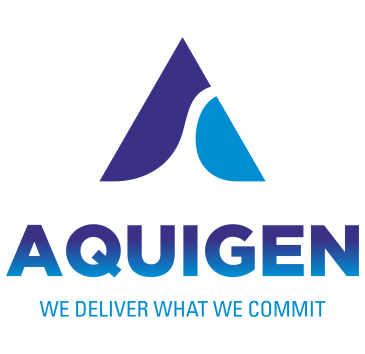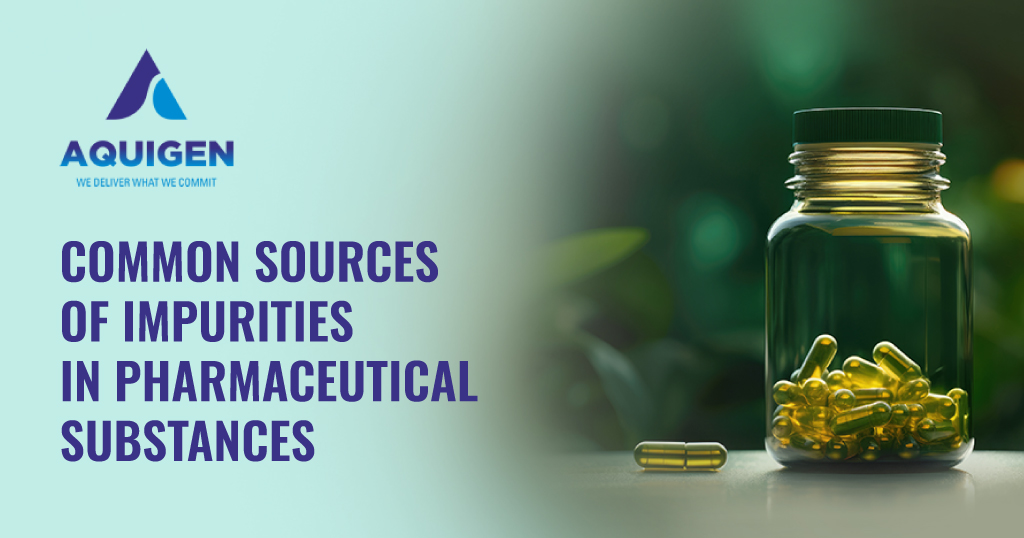Pharmaceutical products require stringent purity standards to guarantee their safety and effectiveness. Despite these efforts, impurities can still arise during production. These impurities can originate from various sources, including starting materials, by-products, synthesis intermediates, and degradation products. Identifying and controlling these impurities is crucial for ensuring the quality and efficacy of the final product. With careful management, pharmaceutical companies can minimize the presence of impurities and deliver safe and effective medications for patients. At Aquigen Bio Sciences, an API Impurity manufacturer and supplier in India, we provide various API impurity manufacturers.
Types of Impurities
The ICH guidelines classify pharmaceutical impurities into three main categories:
- Organic impurities: These originate from starting materials, by-products, synthetic intermediates, and degradation products of the active pharmaceutical ingredient (API).
- Inorganic impurities: These arise from the manufacturing process itself and are typically identified as reagents, ligands, inorganic salts, heavy metals, catalysts, filter aids, and charcoal.
- Residual solvents: These are introduced during the synthesis or purification process with the use of various solvents.
Sources of Organic Impurities
Organic impurities are the most diverse and complex category, often requiring specific identification and characterization. Here are the most common sources:
Impurities from the drug substance synthetic process:
- Starting materials and intermediates: Even high-quality starting materials may contain trace impurities that can carry through to the final product. Additionally, impurities may arise from incomplete reactions or unstable intermediates during synthesis.
- Reagents, ligands, and catalysts: These can leave residual traces in the final product if not adequately removed during purification.
- By-products of the synthesis: These are formed during the desired reaction but are not the target molecule. They can include side products, over-reaction products, and isomerization products.
- Products of side reactions: These occur due to unintended reactions that compete with the desired reaction, leading to undesired impurities.
Impurities originating from degradation of the drug substance:
- Hydrolysis: Degradation through water interaction can occur, especially with active ingredients containing functional groups like amides, esters, and lactones.
- Oxidation: Exposure to oxygen can cause oxidation, leading to the formation of various impurities like aldehydes, ketones, and peroxides.
- Thermal degradation: High temperatures during processing or storage can cause decomposition of the API, resulting in various degradation products.
- Photolysis: Exposure to light can induce photochemical reactions, leading to the formation of light-induced degradation products.
- Enantiomeric impurities: For chiral drugs, even if the intended product is a single enantiomer, the presence of its opposite enantiomer (the enantiomeric impurity) can occur due to incomplete enantioselectivity in the synthesis or incomplete resolution from racemic mixtures.
Managing Impurities
Identifying and controlling impurities is essential for ensuring the safety and efficacy of the final pharmaceutical product. This involves:
- Thorough characterization: Identifying and characterizing all potential impurities using analytical techniques like chromatography and spectroscopy.
- Setting limits: Regulatory guidelines set limits for different classes of impurities based on their potential toxicity and impact on the final product’s quality.
- Controlling the sources: Optimizing the synthesis process, selecting high-purity starting materials, and implementing efficient purification techniques can significantly minimize impurities.
- Stability studies: Monitoring the stability of the API and identifying any potential degradation pathways over time.
Aquigen Bio Sciences: Your Reliable Partner in API Impurity Management
Aquigen Bio Sciences is dedicated to providing high-quality API impurities to support pharmaceutical companies in developing and manufacturing safe and effective drugs.
We offer a wide range of services to help you manage impurities in your APIs:
- Development and production of various organic impurities based on customer needs.
- Characterization and identification of impurities using state-of-the-art analytical equipment.
- Custom synthesis of specific impurities for research purposes.
- Expert consulting on impurity management and regulatory compliance.
Our team of experienced scientists and engineers can help you develop robust and cost-effective solutions for managing impurities in your pharmaceutical products. We are committed to providing you with the highest quality products and services to ensure the safety and efficacy of your drugs.
Contact Aquigen Bio Sciences API Impurity manufacturer and supplier in India to learn more about how we can help you manage impurities in your APIs. We are your reliable partner in developing safe and high-quality pharmaceutical products.


